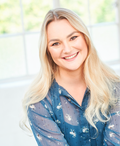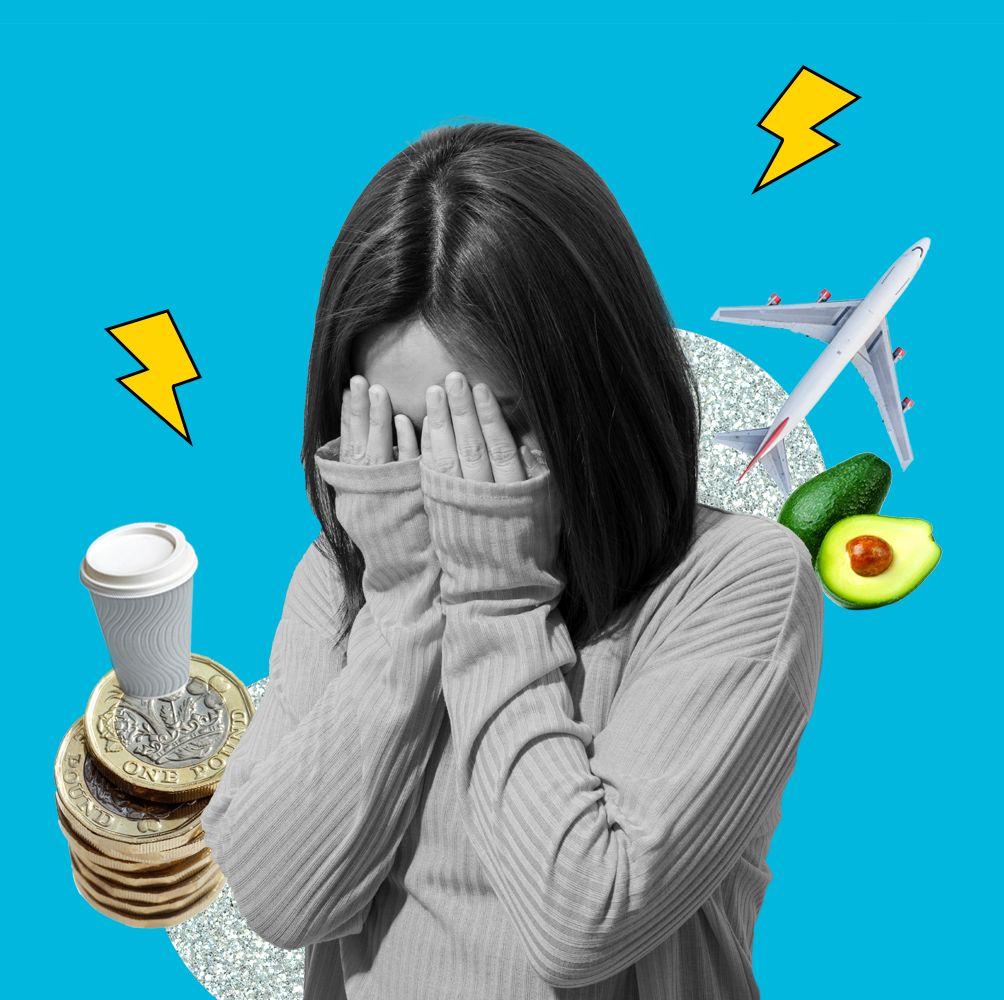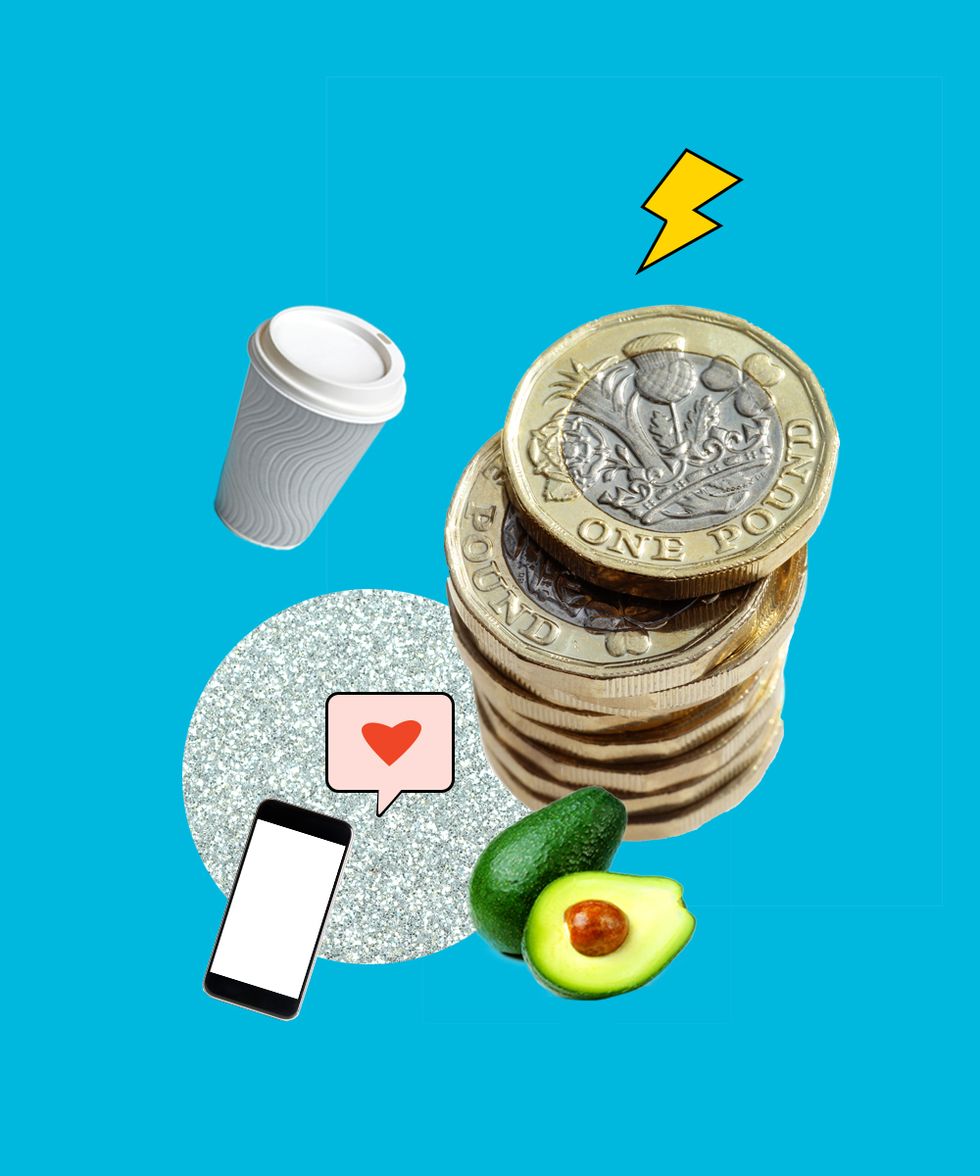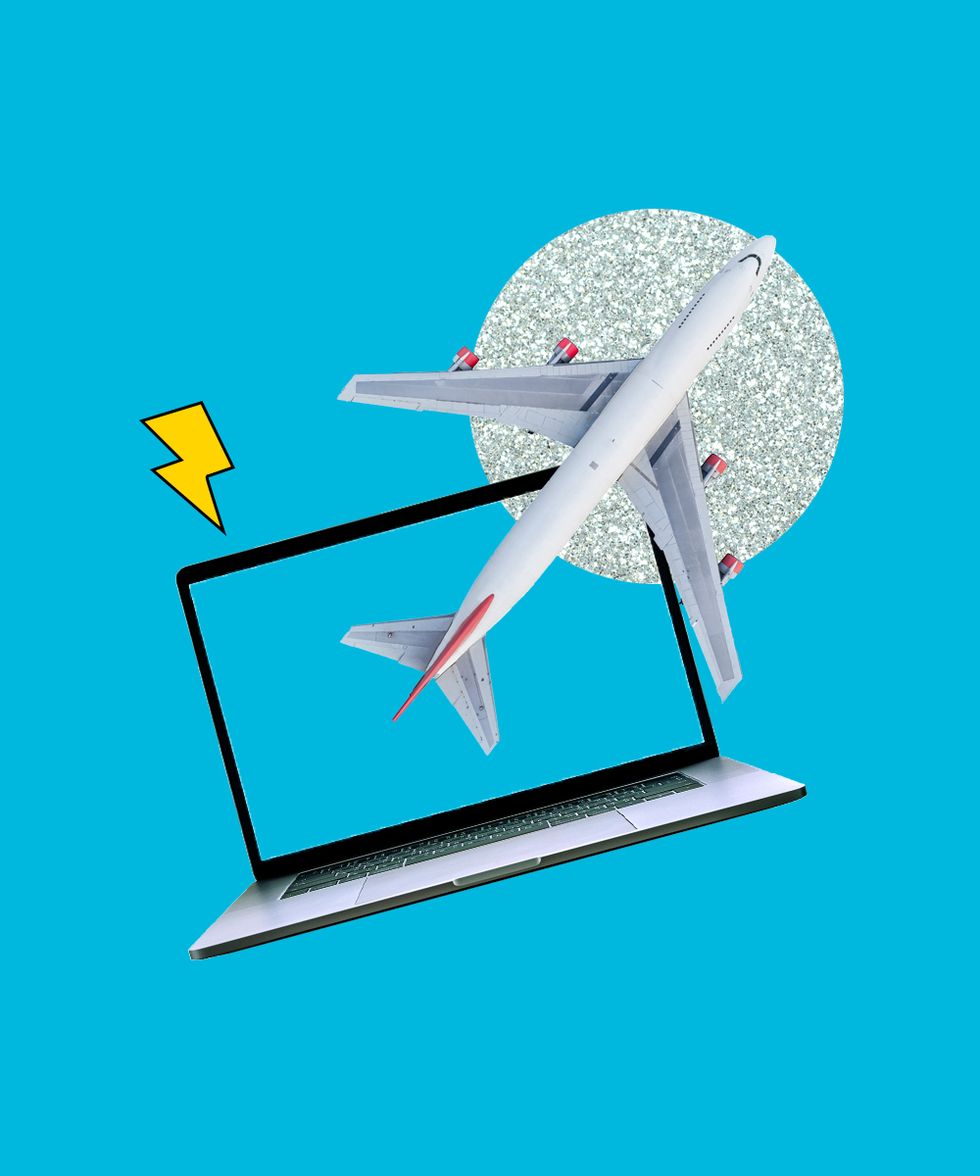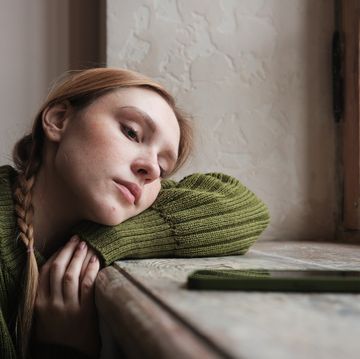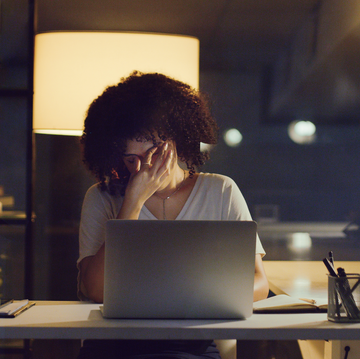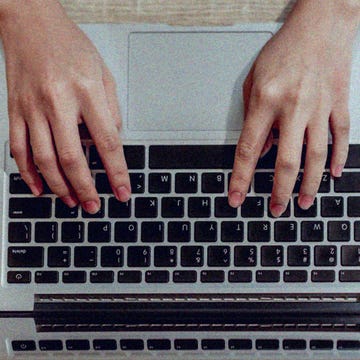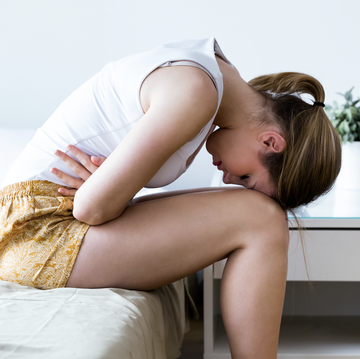I like to think I’m a good person.
I’m kind to the planet, most of the time: I buy organic satsumas from Abel and Cole, compost my food waste, use public transport, buy air-purifying houseplants, carry armfuls of groceries home for fear of using one plastic bag, and I only eat meat once or twice a week. I’m also kind to my loved ones: I rarely cancel on friends, travel the country to attend family birthday parties, and send cards with loving notes and gifts when my pals have babies. And like any good Millennial, I’m trying my best to develop a side hustle alongside my job as Cosmopolitan’s Senior Editor.
If it sounds exhausting, that’s because it is. But despite trying my best to be a compassionate, productive human, I still feel plagued by guilt every day. Why? Well, for one, because every morning, I stop at Pret A Manger to pick up a coffee (an oat milk flat white, because I’m 100% that basic bitch). And I drink it out of a disposable cup. It just brings me a jolt of joy before I get to my desk, ok?
Just typing that paragraph made me feel awful – and my sins don’t stop there. If I really think about it, I end up in a guilt spiral - viewing even my ‘good’ choices through a contradictory lens whereby they could be seen as negative. Abel & Cole deliveries must have a carbon footprint. And it’s great to compost, but I shouldn’t be wasting food at all. Is it really good to buy a houseplant grown in Honduras to clean the air in my East London bedroom? When I travel to family events that I don’t really want to go to, am I betraying my own self-care? Should my side hustle be making more money? And on, and on, and on….
Generation guilt
I know I’m not alone. A recent study found that 96% of women feel guilty every day. But why? Sally Sheldon, Lead Neuroscientist at brain-training app Peak, says guilt is primarily linked to “causing another person physical or psychological pain” but can also stem from the belief that “you’ve transgressed societal or moral codes, or your own ethical codes” - even if that belief is completely unfounded.
“Guilt is also an ‘other-focused’ emotion – that is, it involves thinking about others and our behaviour in relation to them. Because women are socialised to think and care for others ahead of themselves, they’re more affected by it. Finally, we’re more likely to feel Impostor Syndrome – a form of guilt– if we succeed where we fear we don’t deserve to,” add Sheldon.
But it's not just women who suffer from the never-ending cycle of guilt; clinical psychologist Dr Janina Scarlet points out that men also feel fault because of socialisation problems of their own: “Men are traditionally seen as providers, so when they see a loved one going through a hard time and they can’t ‘fix’ it, guilt may play out for them as well.”
While I don’t think I cause others much physical(!) or psychological pain, what Sheldon says about transgressing societal codes resonates with me. To find out what triggers guilt for other people, I conducted a (very scientific) Instagram poll, asking people to slide into my DMs and tell me about the micro-guilts that combine to make us feel bad All. The. Damn. Time.
Let’s just say my DMs have never been so full.
Jess said she feels guilty when she orders Deliveroo when there’s perfectly good food in the fridge. She feels even worse when she then throws the mouldy veggies away two days later. Suzie said she did a five-day vegan detox in an effort to reduce her meat consumption, but was riven with guilt when she realised all 20 ingredients came in individual plastic bags.
Becky leaves WhatsApp messages unread for days because she just can’t deal with the constant pinging of messages. “Does that make me horrible?” she mused. Louisa feels sick buying clothes which aren’t second hand. She bought a new dress for an event recently and felt so bad that she cried about it when she got home. Anna feels guilty that she doesn’t know what’s going on in every corner of the world at all times. Francesca uses a coffee cup holder to avoid burning her hands, but wonders if this is just contributing extra waste; should she save the planet or blister her palms?
And then I felt bad because I forgot to thank everyone who had replied to my initial question.
Safe to say, we’re all part of Generation Guilt - and that's an actual thing; Dr Scarlet says she’s noticed a pattern of people feeling guiltier than they have before (“Nowadays, there are so many pressures on us that dictate what it means to be a ‘good enough’ human,” she says). Sheldon agrees: “Increasingly, women are exposed to conflicting societal codes, causing feelings of guilt wherever they fail to meet them. They must rise as fast as men up career ladders but without being bossy; they must also have a family and an active home life; they must be thin but also curvy; successful but not too ambitious; sexually attractive but not sexually promiscuous; beautiful but not aware of their good looks.” Add in a healthy dose of climate anxiety, and it makes for a toxic mix.
Social responsibility
Dr Scarlet also says social media may be to blame: “It shows us other people’s outward states and makes us believe everyone else is doing better than us, which, of course, tends to not be true. We rarely see their struggles and obstacles.” More honest posts, she says, where people discuss their mental health struggles or burnout, “allow people to see they're not alone and make us feel less guilty about our own lives.”
As we consume more and more information - via social media and other platforms - and our time is stretched in multiple different directions, our guilt is turbo-fuelled. A new study commissioned by energy company OVO reckons if every adult in the UK sent one fewer pointless email a day we would save more than 16,433 tonnes of carbon a year – equivalent to 81,152 flights to Madrid or taking 3,334 diesel cars off the road. Last year, French think-tank Shift calculated that watching one 30-minute programme on services such as Netflix or Amazon Prime emits 1.6kg of carbon, equivalent to driving 3.9 miles. That’s right: we are Netflix and Kill(ing the planet). There’s a backlash against self-care because it’s supposedly selfish. We’re trying to do our best but everything around us tells us we’re failing, or at least misguided, in our efforts.
Anna, 25, from London, who earlier confessed to feeling guilty because she’s not au fait with every world news story, also explained that much of her guilt stems from cancelling on friends for the sake of her own self-care. “Because everyone’s so busy all the time, the next drink is often booked weeks (sometimes months) ahead,” she explains. “Then it comes around to it and a zillion other thing are going on that I couldn’t have been predicted and I know that if I go, I‘m going to be rubbish company. Even though cancelling is about self-preservation, it still makes me feel like a terrible person. I’ll go home and not feel at ease all evening. The only way I get over it is by reminding myself that most people really enjoy an unexpectedly free evening.”
“There’s a tug of war between our feelings of guilt and caring for ourselves,” says Dr Scarlet. “If we prioritise our own wellbeing, we feel guilty. But now we’re starting to learn about the importance of self-care. It’s an investment in our own resilience. Taking time off from responding to text messages might, ironically, give us enough energy to socialise, but if we burn out, we're less likely to be effective.”
Guilt, whether full-on or swimming below the surface, is a plague on our happiness, so at what point do we all just say: STOP. Nobody is perfect. And, what’s more, guilt is actually damaging our health?
“Chronic guilt can have negative impacts on our mental and physical health,” warns Sheldon. “It can weaken our immune systems and increase cortisol levels, which could lead to high blood pressure and an increased risk of heart disease, diabetes, depression and anxiety disorders. Guilt could be a contributing factor in the growing levels of anxiety among young women.”
So, what can we all do to ease the burden of guilt? Sheldon says the first step is to work out if your guilt is just a reflection of the society we live in or you have actually done something wrong.
“When the guilt alerts us to behaviour that doesn’t need to be changed, we experience unhealthy guilt,” she explains. “Tackle this by recognising what you can realistically control about the situation. Disregard what you can’t (easier said than done, of course) and focus on addressing any elements you can affect. Seek other people’s opinions. They’ll give you an alternative viewpoint and help you to accept that a situation isn’t your fault. Challenge perfectionism – having flaws is only human.”
But not all of our guilt is misplaced. “Guilt can clue us in when we’ve stepped outside of the boundaries of our core values, and help us to take responsibility when we’ve transgressed,” Sheldon continues. “As a result, it can lead to a greater sense of self-awareness and prompt us to take a look at our own behaviour and how it affects others — which can motivate us to correct bad behaviour.
"If you feel guilty because you have wronged someone, try to apologise to the person who has been hurt. Accept the blame, acknowledge any pain caused, and resolve the situation if you can," she says. "You can use your guilt to change your behaviour and tackle bad habits – such positive changes will help improve your interactions and prevent repeated feelings of guilt.” In this way, guilt can be one of our greatest teachers, when harnessed in the right way.
Ultimately, though, most of us are doing the best we can. So be kind to yourself. Dr Scarlet adds: “The biggest thing we can do to relieve our burden of guilt is to ask ourselves, “What do I need to help me get through this moment?” Whatever it is, give it to yourself. You’ll have more emotional strength to face the issue when you're ready.”
And sometimes, that really is an oat flat white to go.
Dr Janina Scarlet is the author of Super-Women: Superhero Therapy for Women Battling Depression, Anxiety & Trauma.
Like this article? Sign up to our newsletter to get more articles like this delivered straight to your inbox.
